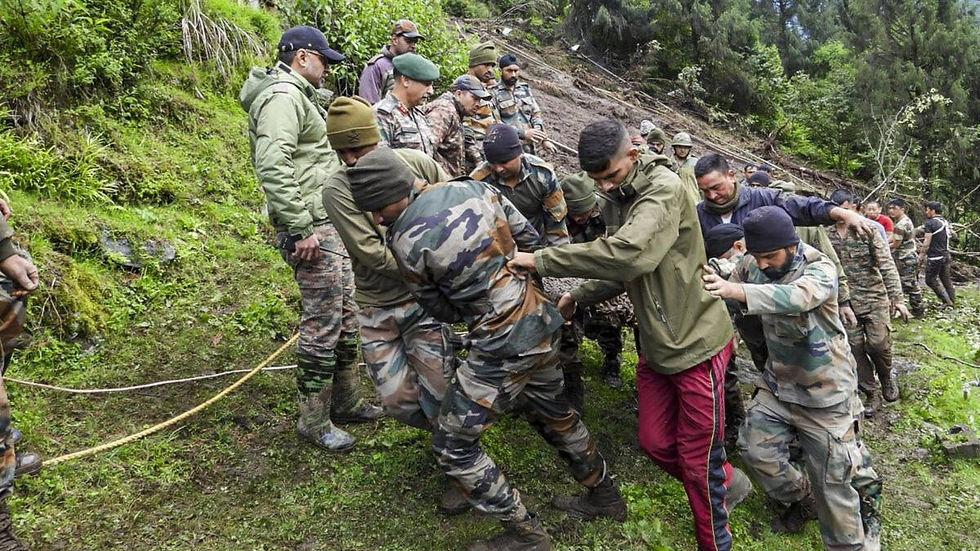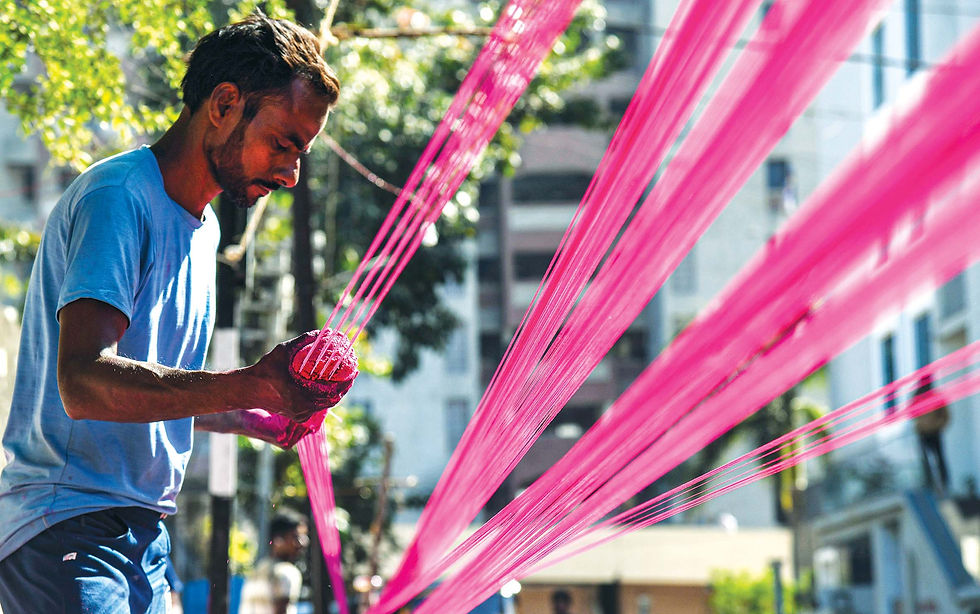3 army personnel dead, 6 soldiers missing as landslide hits military camp in Sikkim
- PTI
- Jun 2
- 1 min read

Gangtok: Three army personnel died and six soldiers went missing after a landslide hit a military camp at Chhaten in Sikkim, a defence official said on Monday.
The landslide, which occurred at 7 pm on Sunday near Lachen town in Mangan district, was triggered by heavy rainfall in the area, he said.
"A catastrophic landslide occurred following intense and continuous rainfall in the region causing death of three combatants, identified as Havaldar Lakhwinder Singh, Lance Naik Munish Thakur, and Porter Abhishek Lakhada," the official said in a statement.
Bodies of the personnel have been recovered, while four other soldiers were rescued with minor injuries, the official said in a statement.
"Rescue teams are working round-the-clock under challenging conditions to locate the six missing personnel," he said.
The army has expressed deep condolences to the families of the deceased and assured all necessary support, the defence official added.





Comments